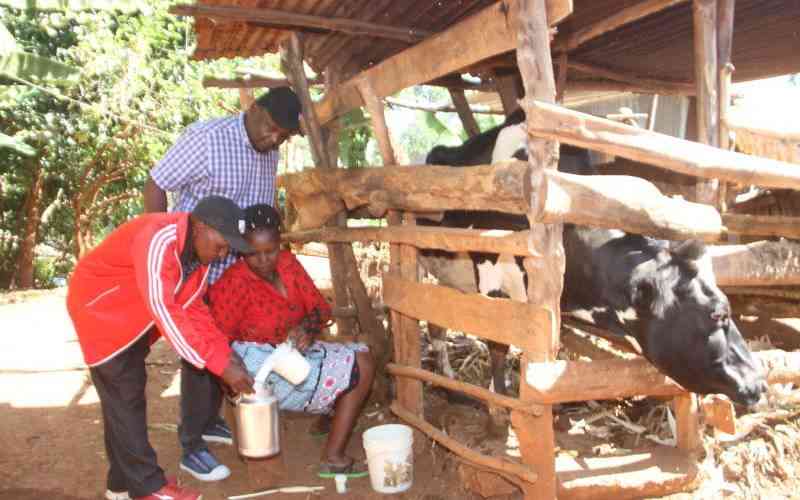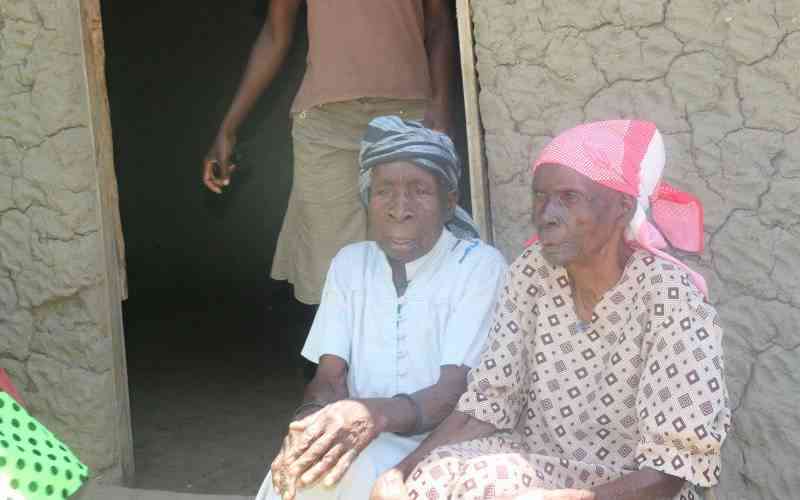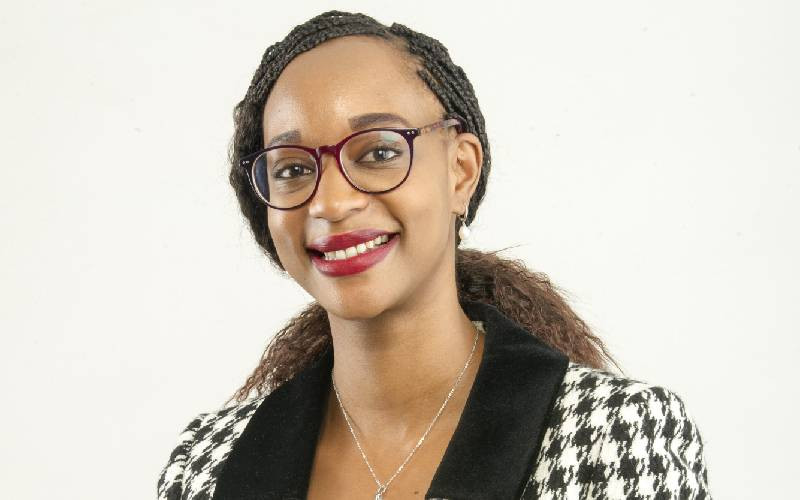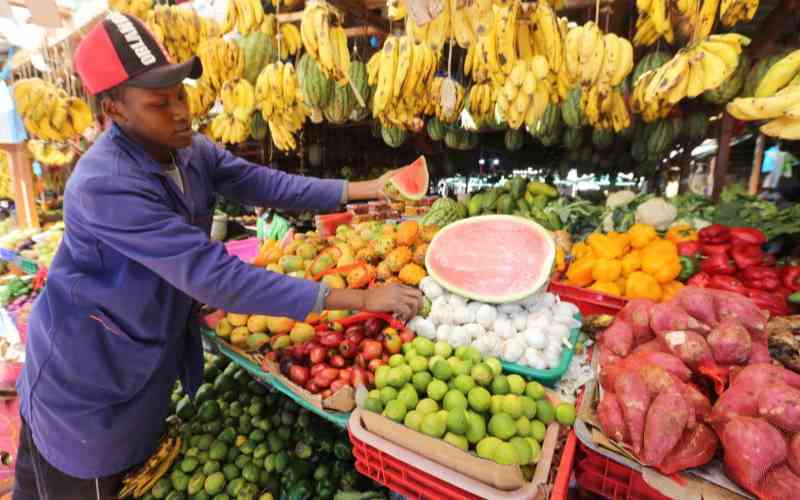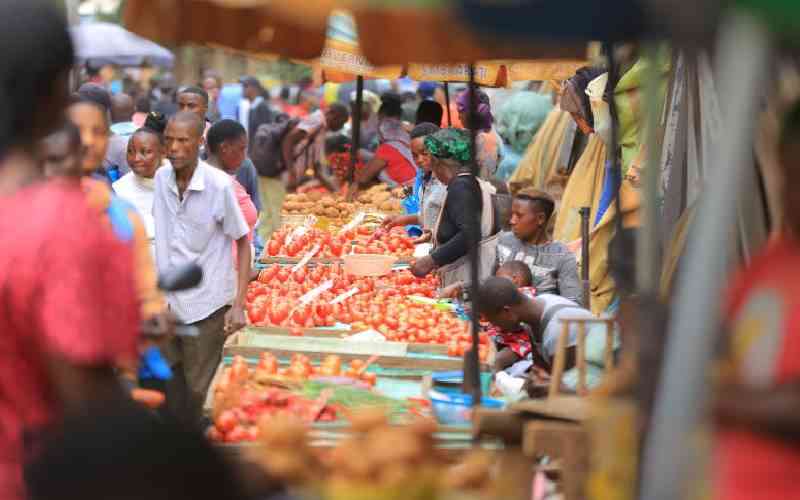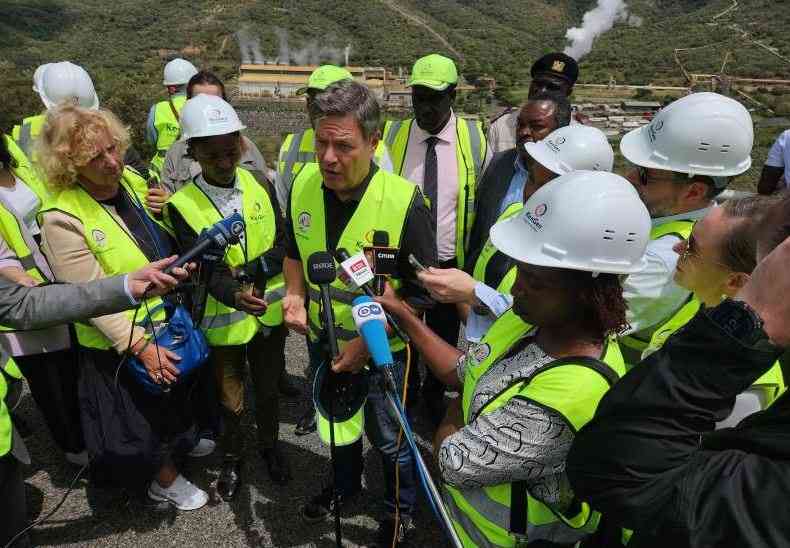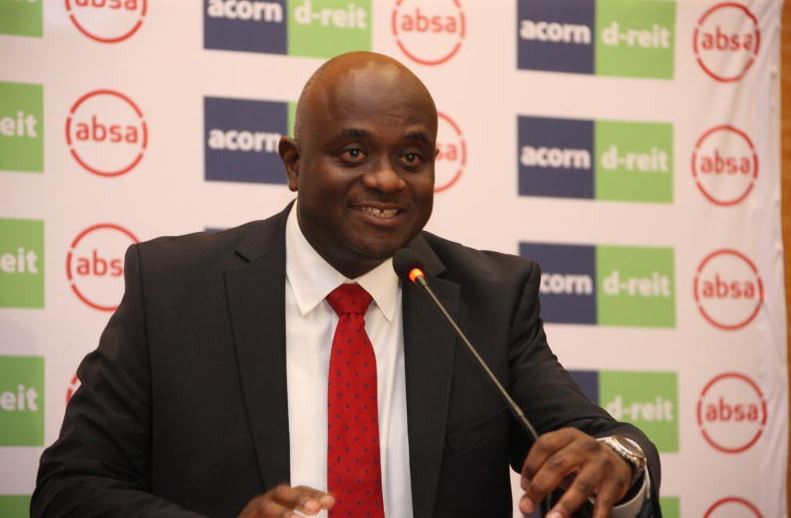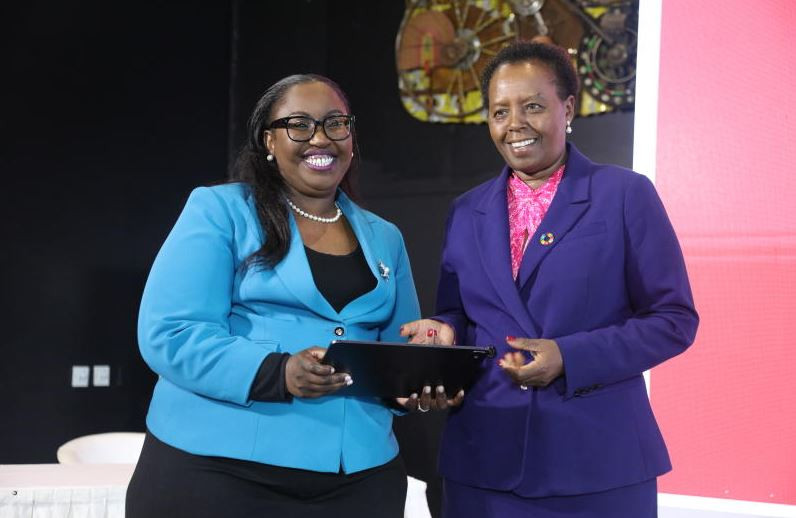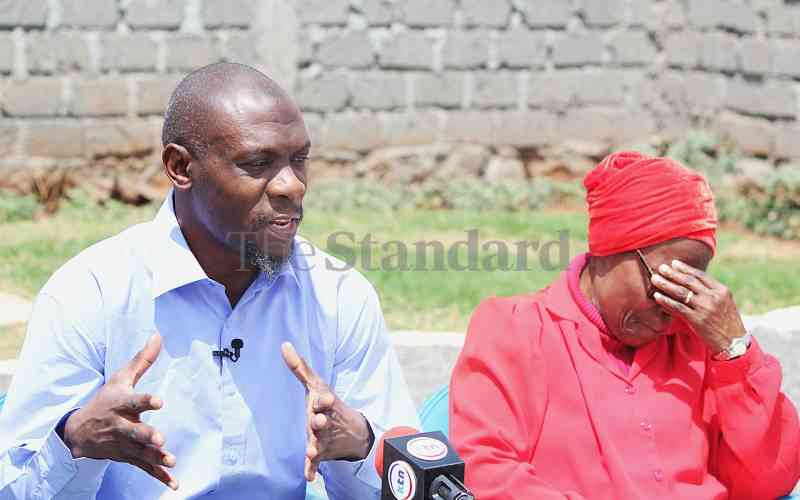
When Stephen Munyakho, popularly known as Stevo, settled for an interview with journalists to tell his story at their home in Katani in Machakos, his voice was raspy and strained. Not just by the weather, but by the weight of deep memories he carried.
It was not just the voice of a man who had simply come home, but that of someone who had lived in the shadow of death for nearly 15 years.
And after he made special recognitions for everyone who contributed to the mission to bring him back home, Stevo expressed his deep regrets for the incident that led to the death of his workmate and a close friend.
“I really feel for that family. I hope that they forgive me,” he said.
Stevo was making reference to the family of Abdi Halim, his late Yemeni colleague who lost his life after an altercation at their workplace in Saudi Arabia and, consequently, lead to his conviction and placement on death row.
Stevo revealed that the fight was salary-related. He demanded for his salary and a misunderstanding arose between him and Halim, who was in the accounts department, leading to the deadly fight.
“I was supposed to go and collect my salary, but he was not willing to let me go. I ended up getting angry. He used words that were not very good and which I could not take. He is the one who started the fight,” Stevo said.
He said Halim stabbed him on the hand and on the thigh, and in return, he too stabbed Halim on the chest.
“The knife was his. After he used it on me, I used it on him…" he said, emphasising that it was not intentional.
"I never ever thought someone could die in my hands. It was my first fight in my life… I was known to be a peacemaker and my mother can testify," he said.
According to Stevo, Halim’s death was as a result of delayed medical attention, leading to excessive bleeding.
That incident that occurred on April 9, 2011, marked the beginning of nearly decade-and-a-half ordeal in Saudi Prisons system that offers few second chances.
Stevo never had the chance to mourn publicly, he never got to say goodbye to his friend and never got to say sorry to the bereaved family. Until now.
“The widow, the children.... I can imagine the state they are in without their sole provider. I didn’t get a chance to pass my condolences under the circumstances I was in. But I hope that through this media, I can send my belated condolences to the family of the Mujahids. And may the soul of my friend rest in peace. What happened is very regrettable,” he said.
Stay informed. Subscribe to our newsletter
Stevo said the death pained him since he was known to the family as a friend.
“The eldest daughter, Susan, is someone I held in my arms. She was still a toddler when I started working there. She knows me very well,” he said.
“I would really like them to know how sorry I am for what transpired. I also wish that as days go by, they forget that incident and carry on with their lives without me being in the picture as a contributor to the death of Halim,” he regretted.
Like many economic migrants, Stevo left Kenya in search of greener pastures in 1996, only to find himself entangled in a justice system he didn’t fully understand and irreversible consequences of a brief misunderstanding.
He recalled how they would ‘wake up to darkness’ in prison, a code word used by inmates facing death row to mean that one of them had been taken for execution.
“I thank God I was able to keep my sanity. In my first year, more than 100 people were taken out. That was very traumatizing because you would be eating and joking with somebody and the next minute, they just take him away from you,” Stevo recounted.
“I think it is something that should be addressed. There should be some sort of seclusion so that even if one of you is taken away, the rest you should not know,” he opined.
Having being in three prisons, Stevo said out of 480 inmates in the first block, more than a half were facing a death sentence.
Through the crushing isolation and fear, Stevo leaned on faith, eventually converting to Islam. He said he became determined to understand the Sharia legal system that had condemned him.
At first, Stevo was sentenced to a five-year sentence for manslaughter before it was reviewed to death after the bereaved family appealed the case.
“I never imagine I would be sent to the gallows. I believed God would intervene and see that the sentence that I was given was not meant for me. What made me not lose hope is when I converted to Islam,” he said.
He narrated how one prison officer, upon hearing his story, told him: This imprisonment had been written for you even before you came out of your mother’s womb. There is no way you could have escaped it.
Those words, though harsh but grounding, helped him surrender to a higher purpose and he began to believe that perhaps, his ordeal had a meaning beyond the prison walls.
“If it was the decree of God, who am I to challenge? I went into the books of Sharia law to understand the change in the rulings and sentencing. And that is how I went into reading the Quran and embracing Islam,” he said.
It literally took a country to bring him back home. Kenyans at home and in diaspora, the government, the Supreme Council of Kenya Muslims, World Muslim League, churches and hundreds of well-wishers came together to raise diyya – the blood money of Sh150 million demanded by the bereaved family.
Stevo spoke of prisoners waiting for more than 30 years for blood money to be paid, overcrowded prisons, and the mental tools inflicted to them in the prisons.
But coming backing home has not been easy. He returned to a country vastly changed, to children who have grown into adults, to loved ones who passed on in his absence.
Stevo spoke after he was officially received by the Cabinet Secretary for Foreign and Diaspora Affairs Musalia Mudavadi, who described his release as “a miracle and a victory of humanity.”
In a press briefing after meeting Stevo and his family at his office, Mudavadi said Stevo’s return was made possible through sustained diplomatic efforts, philanthropic support, and national solidarity.
The CS said President William Ruto also directly appealed to the ruler of the Kingdom of Saudi Arabia Prince Mohammed bin Salman.
Mudavadi also thanked the Muslim community, led by SUPKEM, the Kenya Conference of Catholic Bishops, and thousands of Kenyans who contributed both financially and spiritually to Stevo’s release. He also recognized the World Muslim League for its financial support.
Mudavadi noted that Stevo’s case had moved through the hands of four different Kenyan ambassadors during his imprisonment.
“We currently have over 1,000 Kenyans facing incarceration in various countries. Our embassies and missions are working around the clock to protect their rights and explore all possible channels for resolution,” Mudavadi added.
